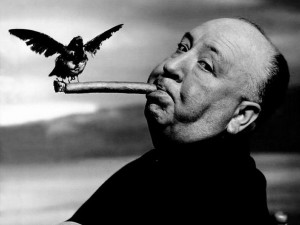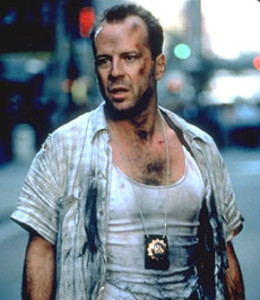
Deuteragonist – noun — the actor next in importance to the protagonist.
* * *
We all know what a protagonist and an antagonist are, but I had never heard the word “deuteragonist” until a few months ago. It comes from the Greek word “deuteros,” meaning “second.” But a deuteragonist is not just a secondary character, he/she is the secondary character.
Wikipedia tells us that ancient Greek drama originally had only one actor, the protagonist, and a group of dancers, the chorus. But then the playwright Aeschylus introduced a second character, the deuteragonist, in his plays.
Aristotle explained it in his work Poetics.
“Thus, it was Aeschylus who first raised the number of the actors from one to two. He also curtailed the chorus and made the dialogue be the leading part.”
So we can thank Aeschylus, who lived 2500 years ago, for the addition of the second character in drama, an innovation which enabled dialogue and conflict.
* * *
“The more complex you make your secondary characters, the more lifelike and involving your story will be.” –Donald Maass
So how is the deuteragonist different from the other secondary characters in today’s fiction?
According to studiobinder.com
“A deuteragonist is the second most important character in a story. This person is also known as the ‘secondary main character.’ While the protagonist gives us our primary point of view of the story, the deuteragonist often provides a different, but often similar, outlook.”
* * *
The deuteragonist can serve different purposes, depending on the author’s goals. But whatever role the deuteragonist plays, he/she should complement the protagonist in a way that affects the main character’s arc in the story.

One possibility is as a supporter, friend, or assistant to the protagonist. Dr. Watson is a famous example of this type of deuteragonist in the Sherlock Holmes books. Watson not only narrates the stories, his gentlemanly compassion contrasts nicely with the purely logical Holmes.

The deuteragonist can also be a love interest. An example of this could be from the movie “Titanic” where Jack Dawson (Leonardo DeCaprio) plays the main secondary to Rose (Kate Winslet). In the movie, Jack shows Rose there is more to life than the suffocating high society she’s being forced into.

 Villains are always useful in helping protagonists overcome their shortcomings and face down danger. An example of this was the film “Die Hard” where the protagonist John McClane (Bruce Willis) matches wits with the villainous deuteragonist Hans Gruber (Alan Rickman.)
Villains are always useful in helping protagonists overcome their shortcomings and face down danger. An example of this was the film “Die Hard” where the protagonist John McClane (Bruce Willis) matches wits with the villainous deuteragonist Hans Gruber (Alan Rickman.)
So there you have it. A deuteragonist can add spice and complexity to a story while enhancing the protagonist’s character arc.
* * *
“The three things that matter most in a story are characters, characters and characters.” –Bob Gale

* * *
So TKZers: Are there deuteragonists that you like from books or films? Have you used a deuteragonist in any of your stories? Do you plan to? Tell us about them.
* * *

Protagonist Kathryn Frasier trains for a marathon, deuteragonist Cece Goldman rehearses for a play, and antagonist murderers hide in plain sight in The Watch Mysteries, an ebook boxset of three complete novels available at Amazon, Barnes & Noble, Kobo, Google Play, or Apple Books. (Today is the last day of the 99¢ sale.)






